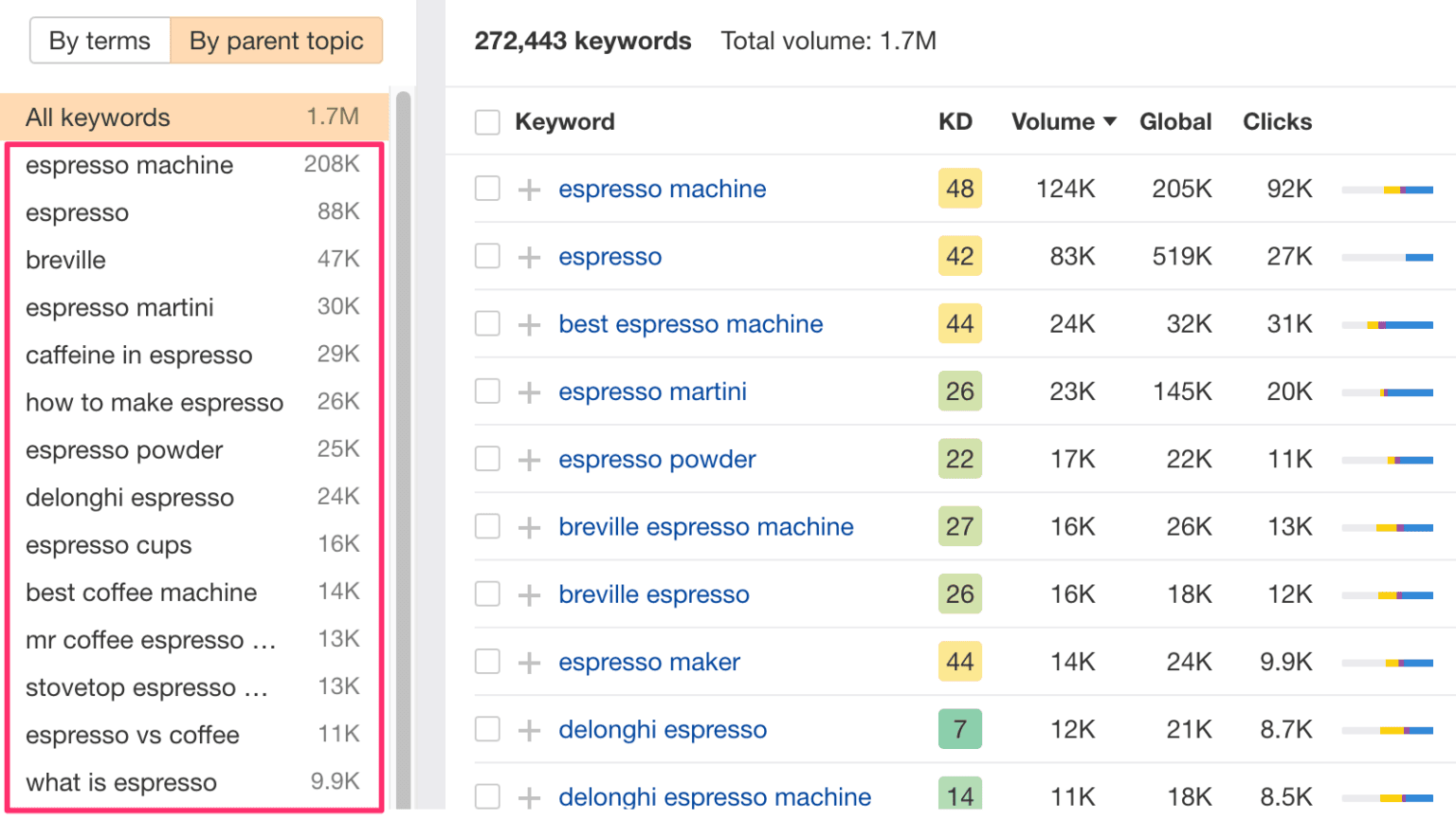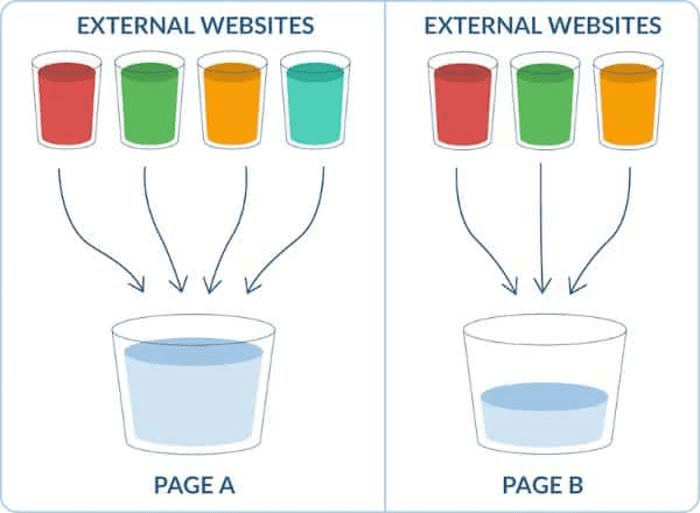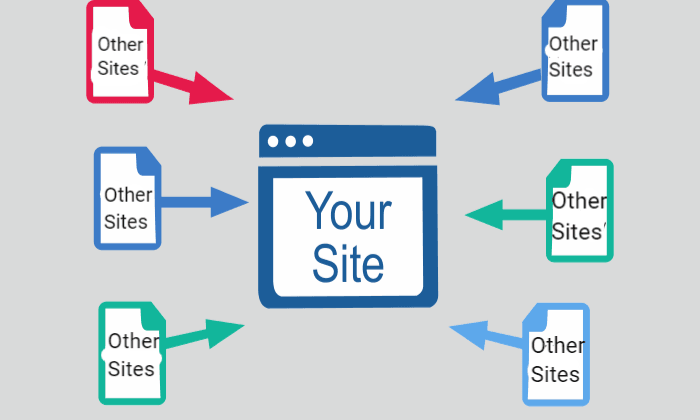SEO keyword clustering is a powerful technique that helps group related keywords to enhance visibility and optimize content. At Keyword Metrics, we break down this crucial SEO strategy to help you improve your rankings and streamline your content efforts for maximum impact.
What is SEO Keyword Clustering?
SEO keyword clustering is the process of grouping related keywords based on their search intent and semantic similarity. Instead of optimizing a single webpage for one keyword, this technique allows SEO professionals to target multiple related terms with one page or content cluster, enhancing search engine visibility and improving the user experience.
How Does SEO Keyword Clustering Work?
Keyword clustering begins with keyword research, where you gather a list of terms and phrases relevant to your website or business.
Here’s how it works step by step:
- Identify Keywords: Collect a broad list of keywords using tools like Google Keyword Planner, Ahrefs, or SEMrush.
- Group by Relevance: Analyze the intent behind each keyword (e.g., informational, transactional, navigational) and cluster them into groups.
- Map to Content: Assign each cluster to a specific page or piece of content, ensuring it addresses all the terms in that group.
For example, if you have the keywords "best running shoes," "top sneakers for running," and "running shoes for beginners," they can be clustered together and targeted on a single page.
Why is SEO Keyword Clustering Important?
- Enhanced Search Visibility: By targeting multiple keywords with one page, you increase the chances of ranking for a broader range of queries.
- Improved User Experience: Content created through clustering is more comprehensive, addressing various aspects of a topic in one place.
- Efficient Content Strategy: Helps avoid keyword cannibalization, where multiple pages compete for the same keyword, diluting SEO efforts.
- Better Alignment with Search Engine Algorithms: Modern search engines like Google use semantic understanding to rank content, making clustering an effective strategy.
Tools for SEO Keyword Clustering
To make SEO keyword clustering more efficient and effective, a variety of tools can help automate the process of grouping related keywords, analyzing search intent, and optimizing content.
Here are some of the top tools you can use:
Keyword Metrics
Keyword Metrics is an advanced SEO tool that automates keyword clustering and content optimization. It scans all your pages to identify high-performing keywords you are already ranking for and finds opportunities to enhance existing content.
Ahrefs
Ahrefs is another popular tool for keyword research and SEO analysis. The "Keywords Explorer" feature allows you to find keywords and group them into clusters based on their relevance. Ahrefs also provides detailed data on search volume, keyword difficulty, and SERP features, helping you identify which keywords are most worth targeting.

Cluster AI
Cluster AI is a dedicated keyword clustering tool that automates the process of grouping keywords by their semantic similarity. It helps you save time by organizing large keyword lists into clusters, which you can then use to optimize your content. The tool uses AI to analyze keywords and match them based on intent, making it a helpful solution for both beginners and advanced users.
Keyword Cupid
Keyword Cupid is a tool built specifically for keyword clustering. It uses advanced algorithms to group keywords by similarity and intent, making it easier to target a broader set of terms. The platform also provides recommendations for grouping content and optimizing your site structure to improve rankings.
SurferSEO
SurferSEO is designed to help with content optimization and keyword clustering. It analyzes the top-ranking pages for a given keyword and provides insights into related terms. The platform allows you to create content clusters that target a range of related keywords and topics, helping you build comprehensive pages that cover all aspects of a subject.
Pro Tips for Using SEO Keyword Clustering Effectively
- Use Keyword Research Tools: Platforms like SEMrush and SurferSEO can automate clustering by analyzing semantic relationships between keywords.
- Focus on Search Intent: Always ensure the keywords in a cluster share the same intent to avoid confusing users.
- Leverage Content Hubs: Create pillar pages for broader topics and link them to related subpages, building an interconnected structure.
- Example: A pillar page on "Running Shoes" can link to subpages like "Trail Running Shoes" and "Best Shoes for Marathon Training."
- Monitor Performance: Track keyword rankings and traffic for each cluster to identify areas for optimization.
- Avoid Overloading Content: Stick to a manageable number of keywords per cluster, typically 5–10, to maintain quality.
Practical Applications and Industry Examples
- E-commerce Sites: Use clustering to group product categories and subcategories. For instance, a category like "Winter Jackets" can include clusters for "Men's Winter Jackets," "Waterproof Jackets," and "Lightweight Winter Coats."
- Blogs: A blog post on "Healthy Eating Tips" can target related keywords like "meal prep for beginners," "healthy recipes," and "balanced diet tips."
- Local SEO: Service providers can group location-based keywords. A dentist in Chicago might cluster terms like "Chicago dental clinic," "best dentists in Chicago," and "affordable dentists in Chicago."
FAQs on SEO Keyword Clustering
Q: How many keywords should I include in a cluster?
A: Aim for 5–10 keywords that share the same search intent and semantic similarity.
Q: Is keyword clustering suitable for small websites?
A: Yes! Clustering helps small websites target multiple keywords efficiently with limited resources.
Q: Do I need separate content for every keyword in a cluster?
A: No, a well-structured page can address multiple keywords in the same cluster if they share the same intent.
Related Glossary Terms to Explore
- Backlinks: Explore how backlinks support your clustered content strategy.
- Domain Authority: Learn how clustering can improve the authority of individual pages.
- Search Intent: Understand why matching search intent is crucial in keyword clustering.


